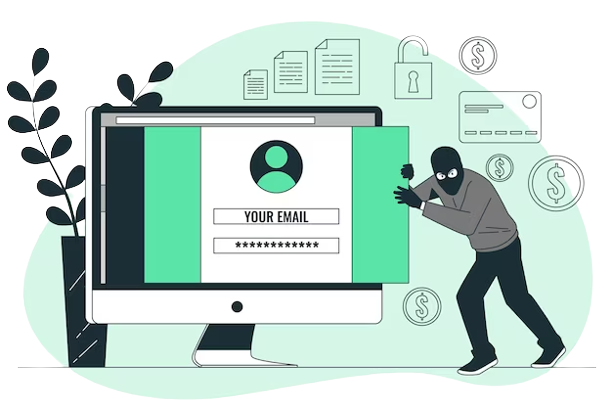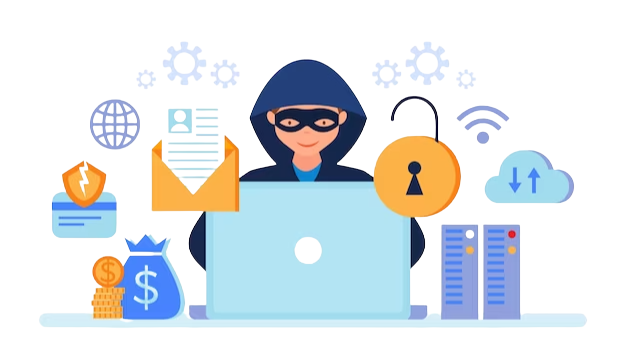Securing Your Business: Anti Phishing Solutions For Preventing Cyber Attacks
As businesses around the world continue to rely heavily on technology for their operations, the risk of cyber attacks has increased significantly. One of the most common and effective methods used by cybercriminals is phishing. Phishing attacks can result in data breaches, financial loss, and damage to a company's reputation. Therefore, it is crucial for businesses to have anti-phishing solutions in place to safeguard their operations and clients' sensitive information against these threats.
In this blog post, we will discuss the importance of anti-phishing solutions in securing your business from cyber attacks. We will explore the different types of phishing attacks, how they work, and the techniques used by cybercriminals to deceive their targets. By the end of this post, you will have a better understanding. phishprotection.com has great information on anti phishing solutions. To learn more, visit the site.

The Importance Of Anti-Phishing Solutions
Anti-phishing solutions play a critical role in protecting businesses from cyber attacks. Phishing attacks are a common type of cyber attack in which cybercriminals use fraudulent emails, text messages, or other communication methods to trick users into revealing sensitive information or clicking on malicious links that can infect their devices with malware.
The consequences of a successful phishing attack can be severe for businesses. They can result in data breaches, financial losses, and damage to a company's reputation. Therefore, implementing anti-phishing solutions is crucial to secure your business from cyber attacks.
Here are some of the reasons why anti-phishing solutions are essential for businesses:
- Identify and block phishing attacks: Anti-phishing solutions use advanced algorithms and machine learning to detect phishing attacks in real-time. These solutions can scan emails, websites, and other digital communication methods to identify potential phishing attempts and block them before they cause any damage.
- Protect sensitive data: Phishing attacks often target sensitive data such as passwords, credit card numbers, and other personal information. Anti-phishing solutions can help prevent the theft of this information by blocking malicious links and preventing users from entering their credentials on fake websites.
- Reduce the risk of data breaches: Phishing attacks are a common way for cybercriminals to gain access to a company's network and steal sensitive data. By implementing anti-phishing solutions, businesses can reduce the risk of data breaches and protect their assets.
- Improve employee awareness: Anti-phishing solutions can also help improve employee awareness of phishing attacks. By providing regular training and education on phishing scams and how to identify them, businesses can empower their employees to be more vigilant and avoid falling victim to phishing attacks.
Implementing Effective Anti-Phishing Solutions

Phishing attacks are a serious threat to individuals and organizations. In order to implement effective anti-phishing solutions, there are several key steps you can take:
- Employee education: The first line of defense against phishing attacks is employee education. Employees need to be trained to recognize phishing emails and other types of social engineering attacks. Regular training sessions can help employees stay up-to-date on the latest phishing techniques and learn how to avoid falling victim to these attacks.
- Email filtering: Email filtering can help prevent phishing emails from reaching employees' inboxes. Many email services offer built-in anti-phishing features that can be customized to suit your organization's needs. You can also use third-party anti-phishing solutions to enhance email security.
- Multi-factor authentication: Multi-factor authentication (MFA) can help prevent unauthorized access to sensitive data by requiring users to provide multiple forms of identification before logging in. This can help protect against phishing attacks that try to steal login credentials.
- Website verification: Phishing attacks often involve fake websites that are designed to look like legitimate ones. By implementing website verification tools, you can help prevent users from accessing fraudulent sites. These tools can be used to verify the authenticity of a website's SSL certificate, domain name, and other security features.
- Incident response planning: Even with the best anti-phishing measures in place, there is always a risk of a successful attack. That's why it's important to have an incident response plan in place. This plan should outline the steps that employees should take if they suspect that they have fallen victim to a phishing attack.
In conclusion, as cyber attacks continue to become more sophisticated, businesses must take proactive measures to protect themselves against phishing scams. Implementing anti-phishing solutions can help mitigate the risk of data breaches, financial loss, and reputational damage. It's essential to educate employees on how to identify and report suspicious emails and to regularly update security protocols to stay ahead of evolving threats.